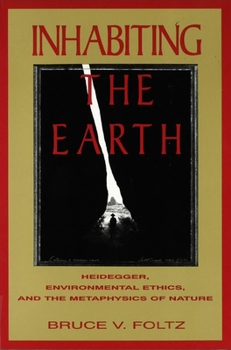Inhabiting the Earth
In Inhabiting the Earth Foltz undertakes the first sustained analysis of how Heidegger's thought can contribute to environmental ethics and to the more broadly conceived field of environmental philosophy. Through a comprehensive study of the status of "nature" and related concepts such as "earth" in the thought of Martin Heidegger, Foltz attempts to show how Heidegger's understanding of the natural environment and our relation to it offer a more promising basis for environmental philosophy than others that have so far been put forward. Indeed, Dr. Foltz finds that to ecofeminism and social ecology, whose prescriptions are based on historically oriented etiologies of domination and oppression, Heidegger's work offers what is arguably the first comprehensive and nonreductive philosophy of history since Hegel that can embrace both nature and humanity in one narrative, and the first since Augustine that can do this while granting to nature a messure of selfstanding. But it is probably for the environmental philosophies of deep ecology, bioregionalism, and ecological holism that Heidegger's work has the most immediate, as well as the most extensive implications, because it is to them that it has the most affinity. Finally, as a corrective and a major challenge to deep ecology, which has tended to valorize the scientific approach to nature, Heidegger's work provides a sophisticated basis for showing the primacy of the poetic in the task of learning to inhabit the earth rightly.
Format:Paperback
Language:English
ISBN:1573926094
ISBN13:9781573926096
Release Date:July 1995
Publisher:Humanities Press Intl
Length:218 Pages
Weight:0.60 lbs.
Dimensions:0.6" x 5.4" x 8.3"
Customer Reviews
0 rating





